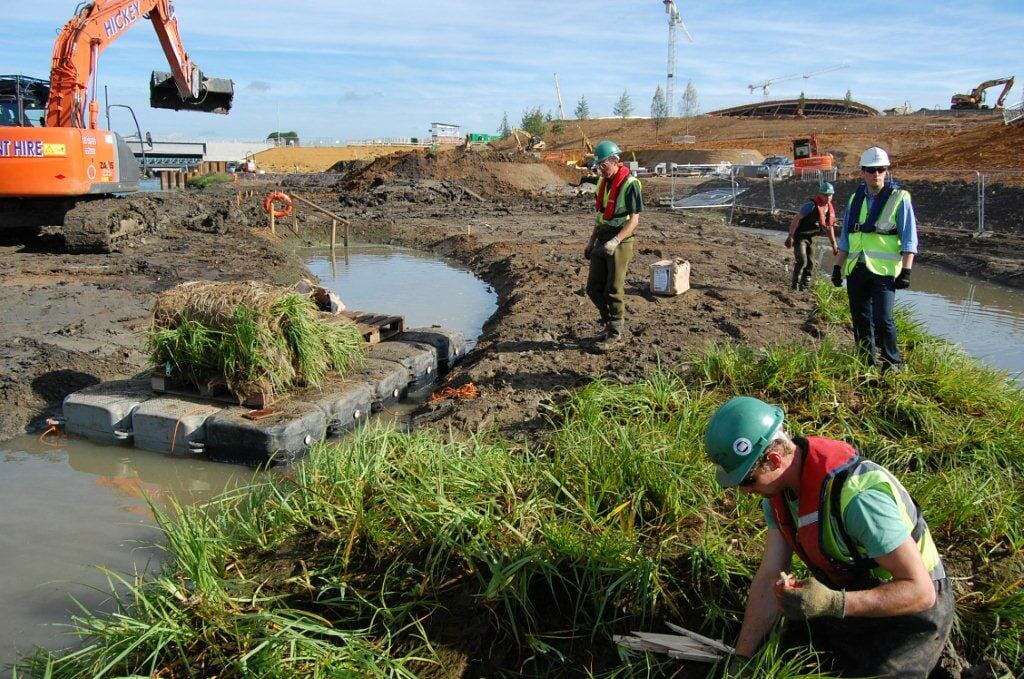
Sustainability extends far beyond the solutions offered to clients: it is central to all areas of work from sourcing to delivery. David Holland at Salix, an RSK group company, explains why it is so crucial to ensure the solutions offered to clients support sustainable practices across the whole value chain.
At Salix, we provide nature-based solutions that resolve the challenges faced by clients. Whether that be managing extreme river erosion or regenerating wetlands, using approaches that work with nature rather than against it offers lasting biodiverse, low carbon solutions. This nature-based approach will ensure a sustainable and resilient solution that meets client needs and supports the natural environment.
But what makes a sustainable solution?
A sustainable solution starts before a project is delivered. It extends across the whole value chain, from sourcing to delivery. Sustainability cuts across all that we do, reaching into global value chains and beyond the direct services delivered to clients. A truly sustainable solution also includes the supply and production of the resources needed to carry out a project.
Salix provides erosion control management, vegetation establishment and ecological restoration work, utilising bioengineering products made primarily from coir fibre. Coir is the natural fibre that makes up part of the outer coconut husk and is a by-product of the coconut food industry. Coir has been used in tropical countries for generations to make rope and nets. We use coir in our erosion control products because of its unique properties that enable the fibre to last a long time in the natural environment. It is high in lignin, which means it has woody characteristics, making it strong, durable and long lasting. Though other natural fibres can also be used in this way, in our experience, coir remains the most suitable material available due to these unique properties.
The coir used by the team here at Salix is supplied directly from a village community cooperative in Sri Lanka, which means we can add significant value to the coir fibre produced by the villagers. The direct sourcing also enables the team to develop a strong relationship with the community living and working in the village, supporting not only the procurement of a sustainable product, but also wider sustainability practices. Working with communities at a local level has ensured the carbon footprint of our coir products is significantly lower than that of our competitors – saving as much 80% of shipping space – and at the same time, it has directly supported the community that produces it.
Working in partnership with communities in Sri Lanka to source coir fibre takes this wider value chain approach to sustainability practices – working directly with the community to minimise waste, lower carbon footprints, sustain jobs and ensure fairer wages. Supporting livelihoods and small businesses means the coir we use to produce erosion control mats, coir pallets and coir rolls is sustainable at source as well as at delivery.
Why use coir?
As opposed to typical solutions that use materials such as concrete, coir provides a stable surface material that protects soils from erosion while quickly establishing native vegetation for habitat creation and restoration.
Over the last 30 years, coir products have been used throughout the UK to control soil erosion and enable native vegetation to thrive. At Salix, we propagate and grow native plants that are grown on into coir fibre, with the production of in excess of 40 km of coir rolls and pallets at our nurseries in Norfolk annually: possibly the largest nursery of its kind in the world. At any one time, there are over half a million native wetland plants growing in coir products, ready to be deployed for diverse applications such as an instant water vole habitat or for great crested newt habitat creation, controlling riverbank erosion, water quality treatment wetlands and landscaping schemes.
The coir manufactured by the team in Sri Lanka is adaptable, biodegradable and an optimal growing medium for river and embankment restoration. It is the natural qualities of the fibre that make it most suited to these uses. A second by-product, created when the fibre is made into mats, is a dusty material called “coir pith”. This pith has valuable applications as the base for peat-free potting compost. Over two million native UK plants (including more than 200 different species of wild flowers and wetland plants) are grown in a coir pith compost that has zero peat soil, further minimising waste and maximising outputs. We are able to make full use of our coir resources, utilising by-products and capturing waste to support our work.
As a business, it is vital that we provide the best solution to clients, as offering a natural solution is best for clients and best for the environment. But also, working collaboratively with the local businesses that produce the materials needed to provide such solutions ensures it is best for the community too.
To find out more about Salix, visit: https://www.salixrw.com/
